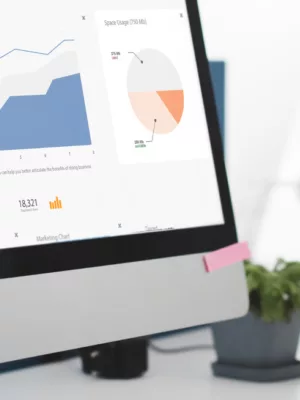
Most companies realize that without proper planning and management of operational processes, it is quite difficult to compete in the fast-growing market. To stay on the level, develop and scale an effective solution for enterprises is the implementation of CRM-system. The main purpose of the software is to collect and analyze various data to increase business productivity. In the HVAC industry, success depends directly on effective management of contracts and service agreements. A key element in achieving this efficiency is the use of CRM software to help streamline, automate and improve customer interactions.
Simply put, a CRM system is software that helps organize and optimize all work processes.
In order for the business to bring good income, you need to control every detail. Keep a database of customers, record applications, and history of communication, monitor sales, and documents, analyze, and record the schedule of meetings and calls, and set tasks. In addition, it is necessary to control the work of employees. Frequently e-mail, spreadsheets, messengers and other programs are used for these tasks. Many companies work this way, but it is a complex and time-consuming process. Therefore, a majority of companies implement CRM. It is insanely convenient because all work is done in one system.
When important information as in the palm of your hand, it becomes easier to improve the efficiency of the company, and as a result, increase sales.
What is CRM in the context of HVAC?
In the HVAC industry, where companies deal with the maintenance, installation, and repair of heating and air conditioning systems, implementing a CRM system is more of a necessity than a useful tool. Smart software allows you to collect and analyze customer information, manage contracts, keep track of service schedules, and automate processes to improve service.
CRM allows you to store information about contracts and service agreements in a centralized system. It tracks terms, conditions, and regularity of service and provides notifications of upcoming work. This provides insight into customer commitments and offers tools to fulfill them in a timely manner.

Automate and streamline service processes
- A CRM system is easy to use and productive in operation. Its tools are designed to work with information in an accessible and optimal way.
- With a CRM system, HVAC companies can automate the creation of service schedules, notify customers of upcoming services, and easily plan their resources. This reduces the risk of missed service deadlines, which in turn increases customer satisfaction.
- CRM also provides analytics that helps HVAC business owners and managers understand what aspects of their business need improvement. The analysis can identify trends, determine the most profitable services, and improve customer service strategies.
CRM can make life easier for HVAC service professionals. The software is the centerpiece for such companies.
Wrap up
So, integrating CRM to manage HVAC service contracts and agreements allows companies to increase productivity, optimize resources, and improve service quality. This, on the other hand, leads to a stronger market position and increased customer satisfaction. CRM is an investment that helps manage customer relationships. It helps to improve service, which in turn affects the growth and success of the company.
Ideal for companies interested in the development and optimization of their workflow. Learn more about how our CRM and ERP application solutions can help streamline your HVAC business operations, contributing to improved efficiency and customer engagement.
Other blog posts on a subject:
- Managing Contracts and Service Agreements for HVAC Systems Using CRM Software
- Protecting Customer Information; The Importance of Data Security and Compliance, in HVAC CRM
- Automating Customer Communication with CRM: Appointment Reminders and Service Updates
- Understanding Inventory Management Systems: Enhancing Efficiency and Profitability







